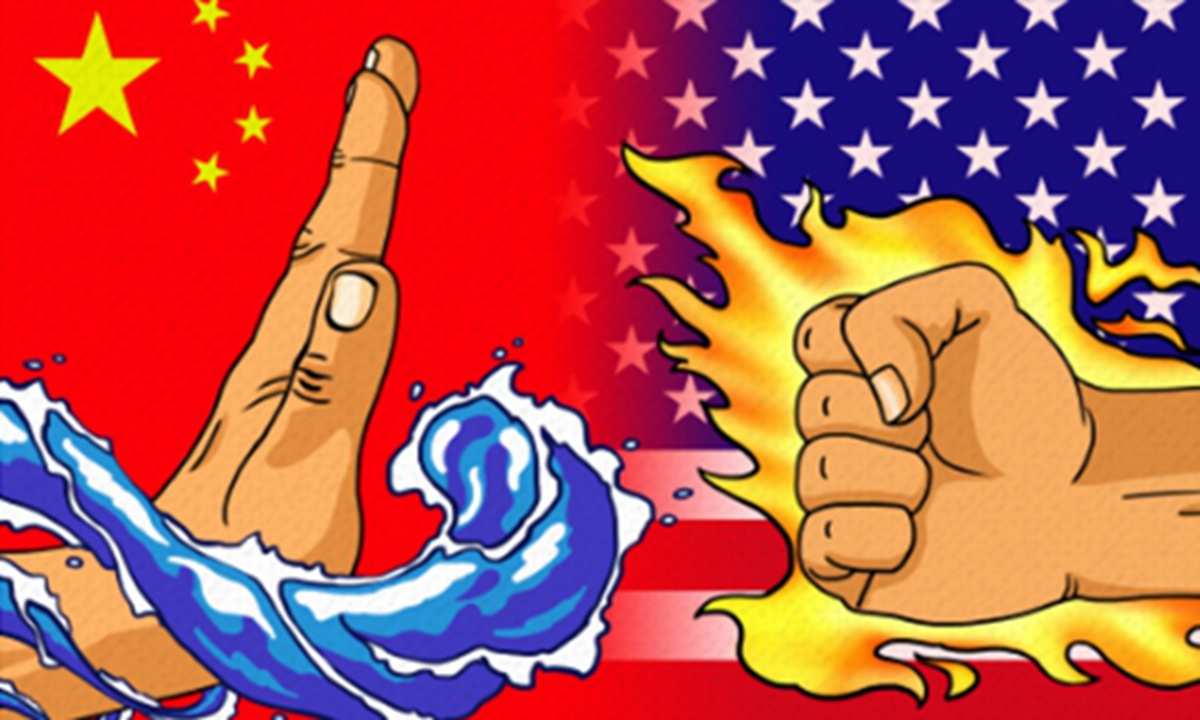Trump weirdly attacks Chinese press under auspices of transparency
Source:Global Times Published: 2020/6/23 19:18:40

Illustration: Liu Rui/GT
Editor's Note:
The Trump administration announced on Monday it was designating four more Chinese media outlets - China Central Television, China News Service, People's Daily and Global Times - as foreign missions. A move that US officials said will "increase transparency" relating to the Communist Party of China (CPC) and what the US called Chinese government's "propaganda activities" in the US. Why has Washington kept escalating the media war with Beijing? What negative influence will such reckless actions have on the China-US relations? The Global Times invited two scholars to share their insights.
Wang Yiwei, professor at the School of International Relations at Renmin University of China
The US views Chinese media outlets from biased lenses. It believes these entities are not "independent news organizations," but instead "propaganda machines" that the Chinese government and the CPC resort to export Chinese ideology.
Western countries, including the US, used to attempt to incite a "peaceful evolution" in China. Now realizing they will never succeed, they perceive China as a big threat to US unity and values. The superiority of China's political system has been continuously displayed in the global fight against COVID-19. Meanwhile, shortcomings of Western democracies have been exposed. The US has become increasingly unconfident in its political system.
Against the backdrop of deteriorating China-US relations, US' continuous suppression of the Chinese media will have a seriously negative impact. China has sent a large number of journalists to the US in the past. These reporters have played an important role in helping the two countries better understand each other.
Some US hawks are seeking to decouple their country from China. If media between the two countries become "decoupled," there will be fewer reports about each other.
Misunderstandings between the two peoples will deepen. It will be easier for US politicians to manipulate public opinion against China. People will be more inclined to believe what is said randomly on social media, such as Twitter, about the other country. These un-checked social media streams will become more sensational.
Sun Chenghao, an assistant research professor at the Institute of American Studies, China Institutes of Contemporary International Relations
Apart from deep US prejudice against Chinese media outlets, the novel coronavirus is another factor leading to US' moves against these four Chinese media entities. Washington argues that Beijing is spreading the so-called disinformation regarding COVID-19. It alleges that Chinese media are unleashing an "information war" or "public opinion warfare." These accusations are not only biased but also irrational as well.
In the not too distant future, US President Donald Trump's bid to win reelection may urge his administration to continue to falsely conflate various anti-China issues as part of a grand disinformation publicity stunt. They might then seek to impose tough policies against China in domains including journalism.
There is a tendency these days in Washington to ramp up its antagonism against Beijing. Yet it remains to be seen whether the two countries will head toward a new cold war. People-to-people exchanges have not been cut entirely. Designating four Chinese media outlets as "foreign missions" does not imply an entire "decoupling" from China in media exchanges.
Washington has repeatedly accused China of suppressing "freedom of speech." However, US' move to restrict Chinese media outlets is inconsistent with its criteria of "freedom of speech" as protected by the First Amendment of the Constitution.
Suppressing Chinese media will restrain the Chinese people from gaining a clear and unbiased picture of what the US really is.
This knee-jerk reactionary move undermines mutual understanding between Chinese and Americans. It adds difficulties for recovering the deteriorating bilateral ties suffered by both US and Chinese citizens since Trump barely squeaked into power in 2017 by a slim margin of votes.
RELATED ARTICLES:
Posted in: VIEWPOINT